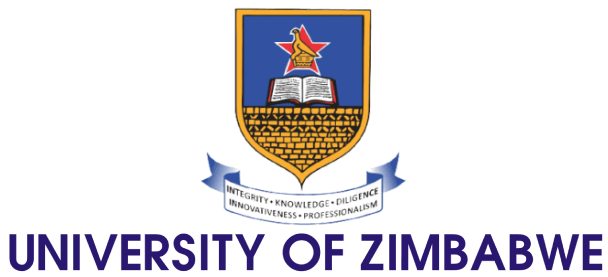BSc. Honours Computer Engineering (HCE)
This Programme produces graduates with expertise in Compiler Design, Embedded Systems, Microprocessors and Microcontroller Technologies, Database Engineering, Software Design, and Artificial Intelligence all in response to the diverse needs of industry. The Programme also equips the students with invaluable experience and knowledge to model, design, implement and test, evaluate and integrate computer hardware and software to create advanced computer-based, digital systems and computational platforms to solve engineering problems.
BSc. Honours Hardware Engineering (HHE)
Graduates from the programme will be able to develop, improve and program computer hardware to facilitate the development of computer hardware systems that meet societal needs. Programming in assembly languages, having knowledge of the operating systems and the electrical part of the computer devices will help in the developing computer hardware systems that allow the hardware devices to be compatible with any operating systems. The graduates will be capable of creating their own export-oriented companies for the benefit of themselves and the country or they will be able to work in computer hardware manufacturing companies.
BSc. Honours Software Engineering (HSE)
This programme produces graduates with the expertise to conceptualise, design, implement, test and deploy high quality software solutions that are reliable, robust, efficient, and affordable. It capacitates graduates with advanced skills spanning from development of infrastructure software, compilers, real-time systems and diverse application software so as to meet the demands of the fast-moving software industry. The graduates are also able to conduct systems analysis and apply appropriate methods and Computer Aided Software Engineering tools specific to tasks such as Software Requirements Engineering, Software Architecture and Design, Software Testing and Quality Assurance as well as Software Maintenance and Re-engineering to produce intelligent, innovative and secure software systems. Graduates can pursue advanced research, can be employed as Software Engineers, Software Developers, Software Projects Managers in industry or establish leading Software Engineering consultancies.
MSc. Computer Hardware Development (MHD)
Hardware Engineering is the process of designing, developing, testing and producing computer systems and various physical components related to computer systems. With the advent of technology and advances in R&D, the scope of hardware engineering has been expanded to include hardware devices enabling embedded software engineering in non-computer devices that drives the economy and boost productivity in the hardware industry. A graduate from this Programme would therefore have expertise to produce PCBs, Microchips for integrated circuits, Computer electronic devices, SSDs, HDDs, RAM chips. This Programme will equip graduates with expertise to design, build, and test computer hardware (such as computer chips and circuit boards) and maintain computer systems.
MSc. Computer Engineering (MCEN)
This programme seeks to produce graduates with advanced knowledge of the application of sophisticated engineering methods and tools to the design and development of hardware and software systems as well as advanced computational platforms thereby provisioning modern technologies in response to the ever-changing societal needs. The competencies ranging from development of intelligent systems, computer hardware optimisation, software reliability, design of appropriate systems architectures, High Performance Computing and an emphasis on systems security will capacitate the graduates to embark on cutting edge research and development of real-time, mission critical systems in domains such as medical, aeronautics, mobile networks and Computer Infrastructure. Furthermore, they will be able to apply smart technologies and robotics to support the technological developments in industry, as well as finding spaces in global technology leaders and creating their own enterprises.
MSc. Computer Software Development (MSD)
A graduate from this programme is equipped with practical knowledge and tools for engineering software systems that are reliable, robust, efficient, and affordable, all intended to satisfy the user requirements. Graduates will have the ability to model real life problems and solve them using software. In addition, the graduates have the expertise to develop business applications, web applications, mobile software, gaming and enterprise databases systems. Graduate should be able offer software analysis, development and testing services to industry. Furthermore, they can start their own software engineering consultancies.
